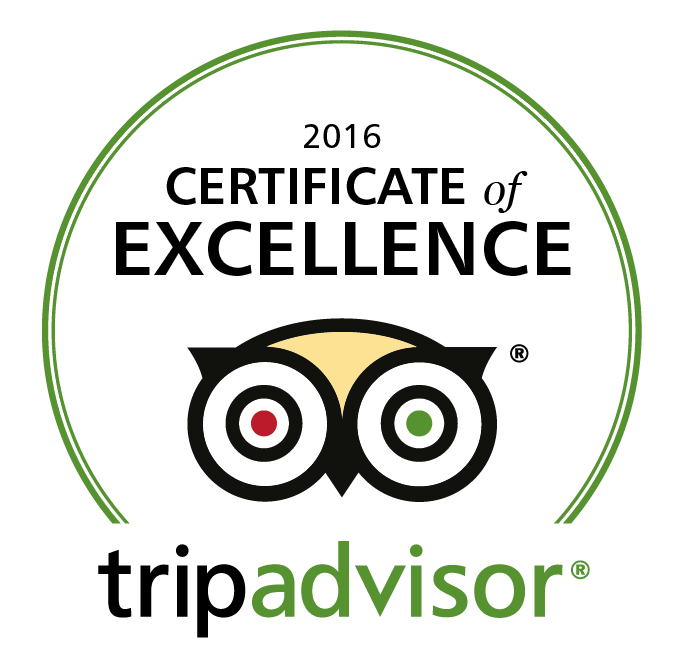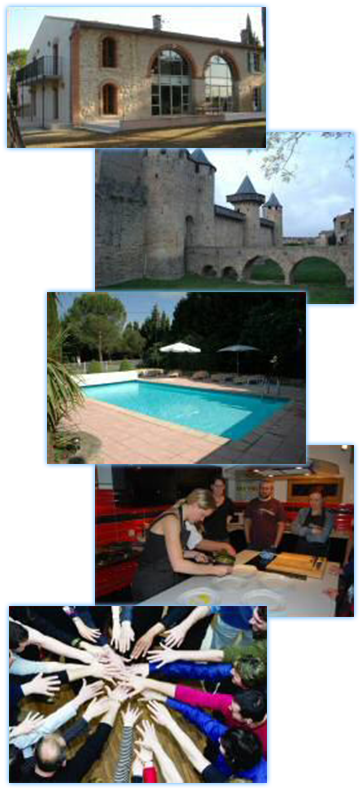Digital Film-making Courses
Groups of five or more persons who wish to book this course should please contact French House Party to discuss dates and other requirements.
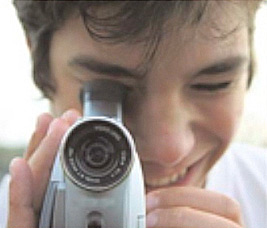 Learn how to get the best from your digital video camcorder. Whether you want to learn the aesthetics of filming techniques, how to edit the material on your home computer, add special effects and musical soundtracks or understand animation, this fun course takes the mystery out of the technology.
Learn how to get the best from your digital video camcorder. Whether you want to learn the aesthetics of filming techniques, how to edit the material on your home computer, add special effects and musical soundtracks or understand animation, this fun course takes the mystery out of the technology.
Our groundbreaking Digital Film-making Course is for adults and young people over the age of 12 (at least one adult per child), operated by a qualified British instructor who regularly runs introductory courses in UK schools and for groups of adults. This is an all-inclusive six day holiday containing five days of instruction.
Peter has been involved in filmmaking for more than 30 years. After training as a professional photographer, working in the editorial and advertising media and teaching photography, he retrained to become a teacher, studying art and majoring with a first-class honours degree in etching and other print-making: his tutor was David Carpanini (a former president of the Royal Society of Painter-Printmakers).
Prior to launching his own educational film company Darkfire, he spent 11 years as a head-teacher – much of this time promoting the use of digital photography and film-making as an educational and expressive arts tool. Darkfire is the sponsor and host for the UK’s Cheshire Schools Film & Animation Awards (The COSCARS) and also the UK open Schools Film & Animation Awards (The DOSCARS).
Peter is the organiser of an annual film festival in his home town of Alrewas, Burton-on-Trent, UK.
NB: Aside from the set times of the chauffeured filming trips or other outings, this is a very flexible timetable which allows delegates to focus on their own particular filming interests and to spend as much time as they wish on their projects.
Session timings should therefore be taken as guidelines only. This is a rough guide to the week and the schedule may be subject to change.
All course members take home their own film tape, film clips on DVD to edit later, copies of their final films and a copy of Cracking Digital Film Making, our interactive training CD Rom which helps to extend the training and ensures that nothing is forgotten.
Tutor
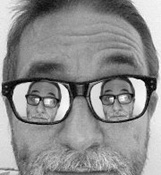 A former headteacher who decided mid-life to follow his heart and leap into a world of creative commerce, Peter Ralley is the nearest thing FHP has to Martin Scorsese. Well, he’s a Goodfella, for a start (definitely not a Raging Bull, that’s for sure). Plus, he did have one of his movies screened at the Cannes Film Festival last year and picked up an award at the Monaco International Film Festival.
A former headteacher who decided mid-life to follow his heart and leap into a world of creative commerce, Peter Ralley is the nearest thing FHP has to Martin Scorsese. Well, he’s a Goodfella, for a start (definitely not a Raging Bull, that’s for sure). Plus, he did have one of his movies screened at the Cannes Film Festival last year and picked up an award at the Monaco International Film Festival.
A film-maker and photographer, Peter creates projects for the community, for advertising and other businesses and also runs digital film-making courses for groups of adults and in schools, focusing on the aesthetics of filming techniques, editing material, adding music soundtracks and special effects and mastering the art of stop-motion animation – which is basically what he does for us, too. The only course offered at FHP which is open to youngsters as young as 12, course dates yet to be announced.
The course combines both digital still and movie technology and will give you an insight into the technical and creative aspects of this ‘new media’ making use of the new breed of digital
SLR cameras. Success is guaranteed and no previous experience is required.
Schedule
| Day |
Time |
Activity |
| Day One: Sunday |
Various |
Arrival, light lunch for early arrivals, settling in |
|
2.30 pm |
Greeting Meeting: After an introduction to the course materials and a discussion of delegates’ ideas for their films, the local area will be used for filming |
|
4.30 pm |
Tea and cakes |
|
6 pm |
Aperitifs by the pool |
|
7.30 pm |
Dinner at home |
| Day Two: Monday |
from 8.30 am |
Breakfast |
|
|
Workshop 1
Filming techniques in action. Using the PC |
|
2.00 pm |
Downloading and first editing session of material.
Films will be exported for viewing on each day of the course. |
|
7.30 pm |
Dinner at home |
| Day Three:Tuesday |
from 8.30 am |
Breakfast |
|
|
Morning filming trip: Bus leaves to go to La Cite, Carcassonne – the aim is to make a travel/documentary style film |
|
1.00 pm |
Return home for lunch. |
|
2.30 pm |
Workshop 2
Rough cut, editing and adding to this morning’s film. Export for viewing. Use of storyboards in film making |
|
8.00 pm |
Dinner at restaurant |
| Day Four: Wednesday |
from 8.30 am |
Breakfast |
|
9.30 am |
Bus leaves for filming trip to local market |
|
1.00 pm |
Lunch at home |
|
2.30 pm |
Workshop 3
Editing session. Extracting and Integrating digital stills in the film making process – using stills and Microsoft Photo Story to produce a video story. Adding effects,music, titles etc. Basic stop-motion animation |
|
8.00 pm |
Dinner at restaurant |
| Day Five: Thursday |
from 8.30 am |
Breakfast |
|
9.30 am |
Bus leaves for third filming trip.(Packed lunch provided) |
|
2.00pm |
Bus returns home |
|
3.00 pm |
Workshop 4
Finishing off
Final editing of films
Exporting for viewing
Free choice for delegates to concentrate on particular areas of interest, eg. drama, comedy, animation |
|
6.00 pm |
Wine-tasting session for adults, in-house with Carl |
|
8.00 pm |
Finale Dinner at home Followed by Grand Showing of all films. Prizegiving |
| Day Six: Friday |
from 8.00 am |
Breakfast. Departures |
Film Challenges
During the week delegates are asked to take on a film challenge. These challenges may be taken on at any time in order to extend personal film making expertise.
- The aim is to make a short, maximum ONE MINUTE, film.
- The ideas are designed to make you think about different types of film and to have some fun.
- Choose something that feels comfortable or challenge yourself! You can take on a challenge at any time to extend your film making expertise.
Examples of Film Challenges:
- Make a film about a single object e.g. a table, a car, a cup. The aim is to make that object interesting, mysterious, fun . . . anything!
- Make an instructional film e.g. making a paper aeroplane, how to tie your shoe laces. They key to this is to keeping the watchers interest and making it very clear to the audience.
- Make an advert for TV (you might even like to write a jingle!)
- Shoot a film entirely in black and white making use of its ‘film noir’ qualities.
- Shoot a film from a mouse’s point of view.
- Make a film that takes advantage of the slow motion feature of the editing software.

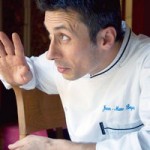
 Learn how to get the best from your digital video camcorder. Whether you want to learn the aesthetics of filming techniques, how to edit the material on your home computer, add special effects and musical soundtracks or understand animation, this fun course takes the mystery out of the technology.
Learn how to get the best from your digital video camcorder. Whether you want to learn the aesthetics of filming techniques, how to edit the material on your home computer, add special effects and musical soundtracks or understand animation, this fun course takes the mystery out of the technology. A former headteacher who decided mid-life to follow his heart and leap into a world of creative commerce, Peter Ralley is the nearest thing FHP has to Martin Scorsese. Well, he’s a Goodfella, for a start (definitely not a Raging Bull, that’s for sure). Plus, he did have one of his movies screened at the Cannes Film Festival last year and picked up an award at the Monaco International Film Festival.
A former headteacher who decided mid-life to follow his heart and leap into a world of creative commerce, Peter Ralley is the nearest thing FHP has to Martin Scorsese. Well, he’s a Goodfella, for a start (definitely not a Raging Bull, that’s for sure). Plus, he did have one of his movies screened at the Cannes Film Festival last year and picked up an award at the Monaco International Film Festival.














